Business Ethics
- In contemporary business operations a company is anticipated to act in a manner that is ethically sound, within lawful practices or preserves its reputation.
- A ethical concern can have critical effect on organizations’ threshold, which influence owner value.
- Also ethical concerns can lead to costly and lengthy inquiries, policy battles and expensive penalties.
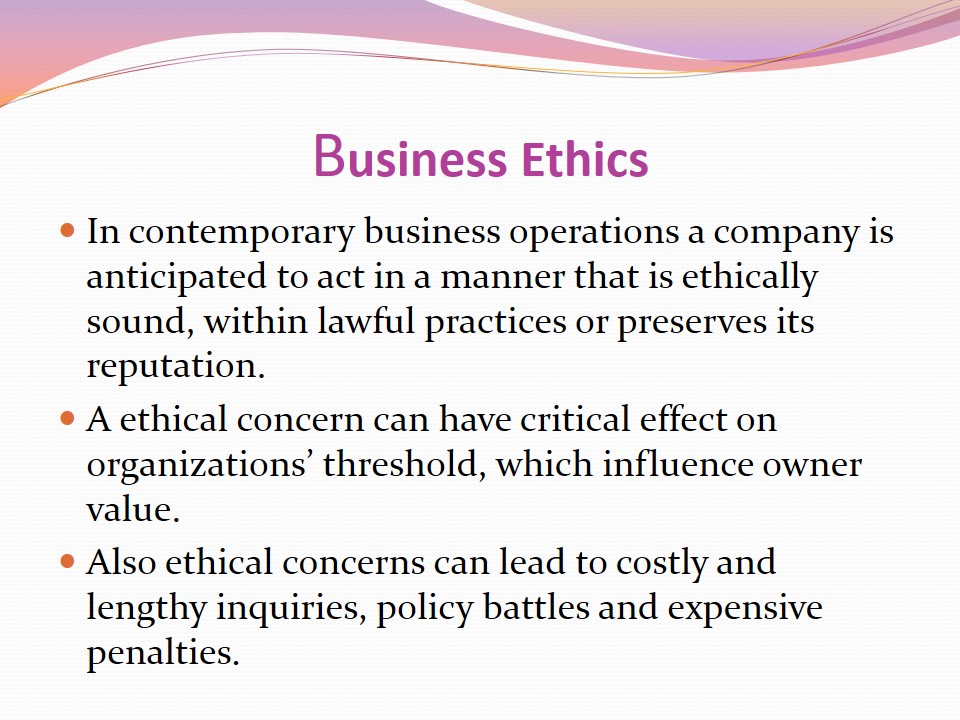
Financial Institutions
- Financial institutions, in addition to United Kingdom service firms like law service providers, are required to understand their clients.
- Know your customer policy is meant to deter and prevent financial crimes.
- Similar practices are in addition required to take into account clients practices so as to often control operations with a view of complying with duties of reporting instances of money laundering.
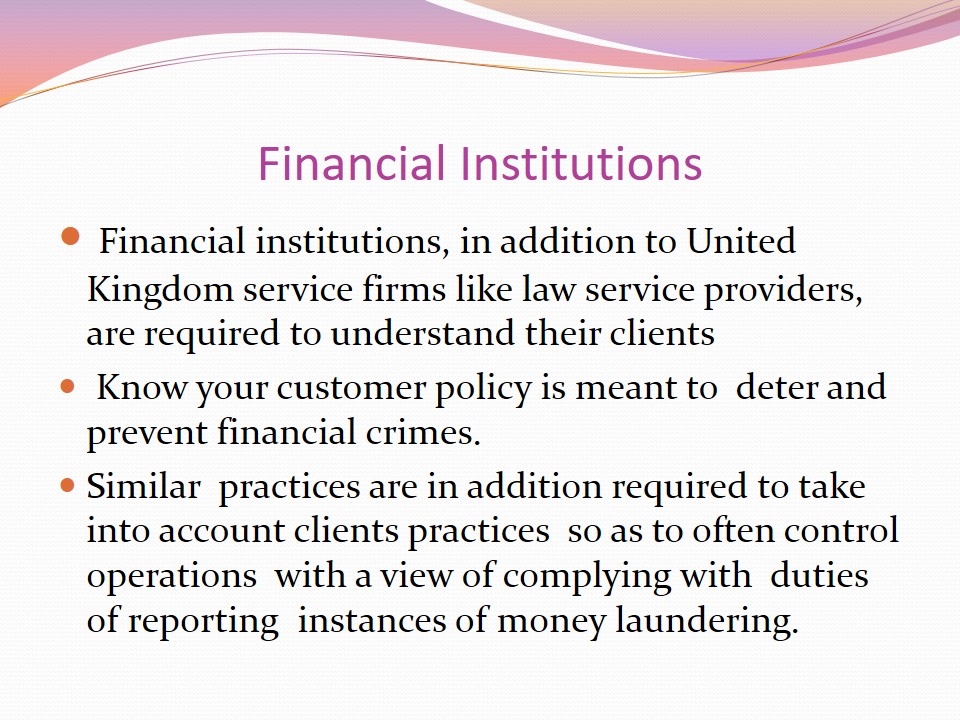
Knowing your customer
- Customer knowledge involves the following:
- owner identification documents;
- details of all shareholders;
- proof of residence for shareholders;
- proven copies of ownership documents.
- Controlled companies and those with whom they do business require ensuring that they are not involved in suspicious deals.
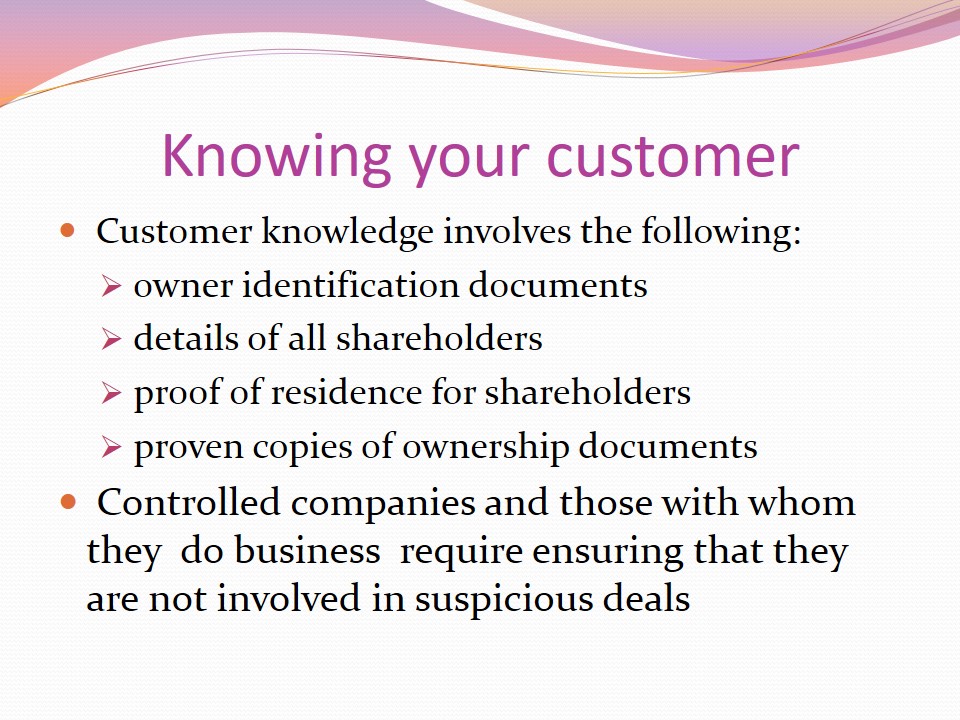
Regulations
- A firm’s adherence or legal section have to ensure that all nations in which the firm operates in are listed.
- United Arab Emirate Banking sector has installed a counter-money laundering regulation, which prevents any financial institution (comprising foreign exchange) from aiding in laundering money.
- Have to report various operations and identify suspicious deals.
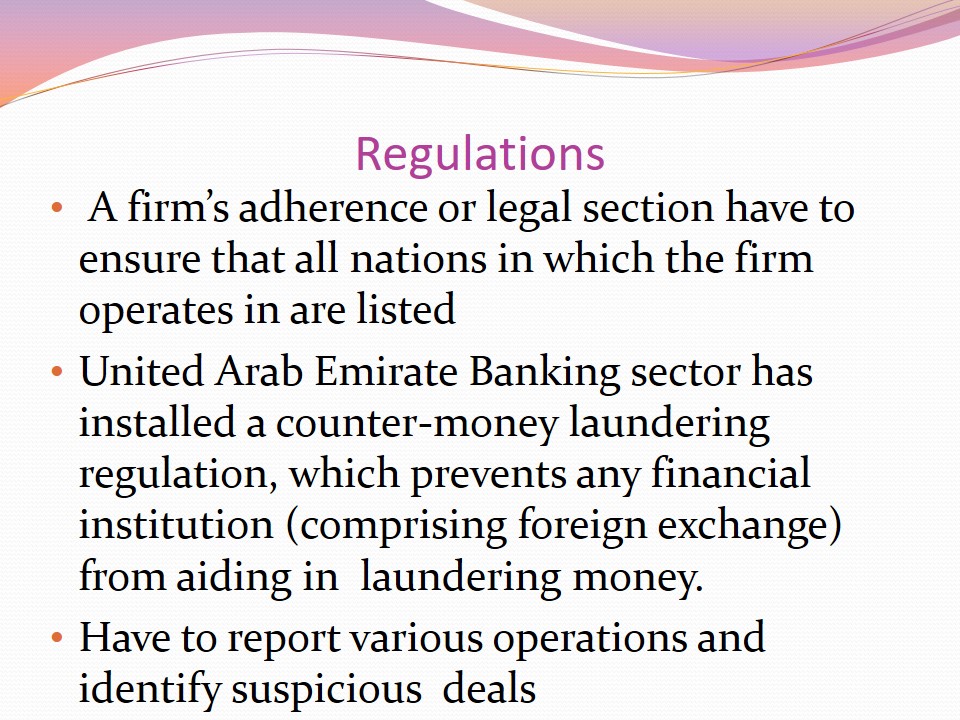
Foreign Corrupt Practices Act (FCPA)
- Only applicable to United States firms and individuals, foreign firms listed on United States stock exchanges, or certain individuals doing business in the U.S.
- Prevents suspicious remittances or deciding to remit, indirectly or directly, money or anything of value to an individual for obtaining or retaining business.
- Plans are core but in reality, any money remitted to any foreigner may be targeted.
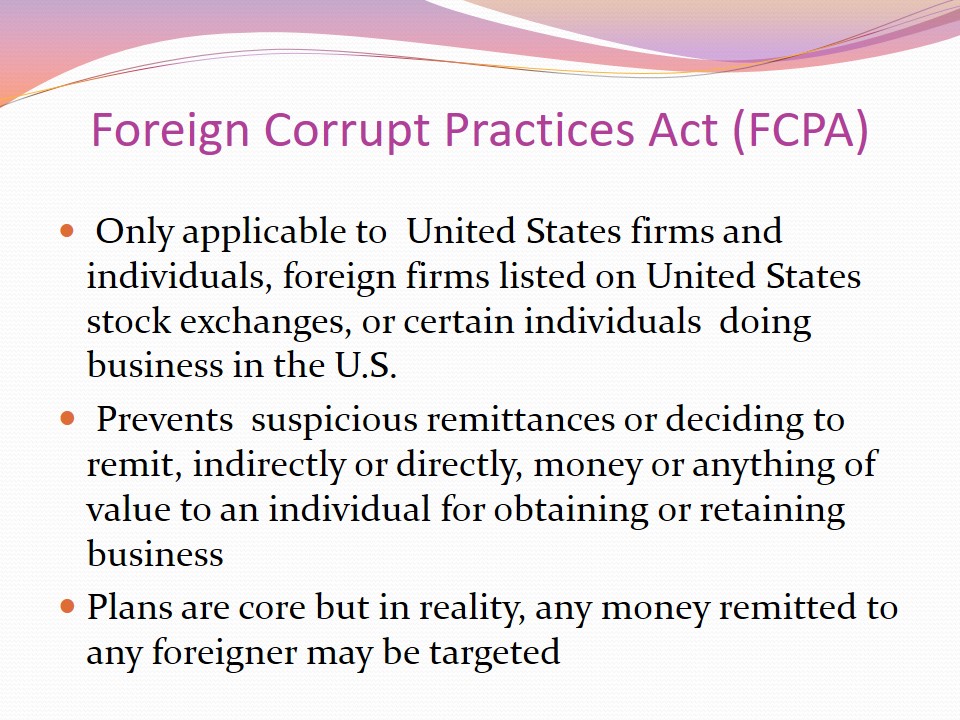
FCPA: implications
- Applies even to foreigners provided that they are doing business in U.S., regardless of whether the business is related in any way to the United States.
- Many key implications for non U.S citizens arise in the context of money deals.
- Influences valuation in money exchanges with United States individual, who is exposed to acquired risks from the firm’s previous operations.
- A firm subject to the FCPA encounters heavy penalties and investigation costs.
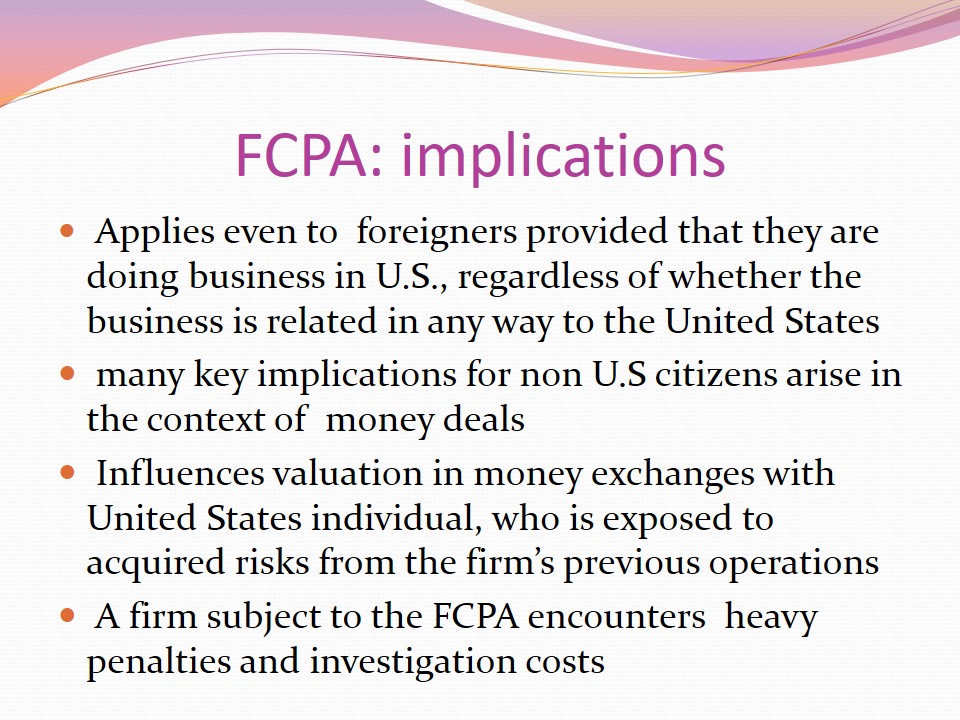
Anti-Bribery Regulations
- Current anti-bribery laws only now being formulated.
- More inclusive compared to the FCPA.
- Basically, in use among United Kingdom persons, residents and firms developed based on UK policy.
- A non-UK firm can be regarded as being responsible for any delay or failure of preventing corruption if it does business in the United Kingdom:
- conducting business within the UK territory comprises carrying out business with an individual from UK;
- loans awarded by UK financial institution, for example, will subject firms and entire operations globally to the law.
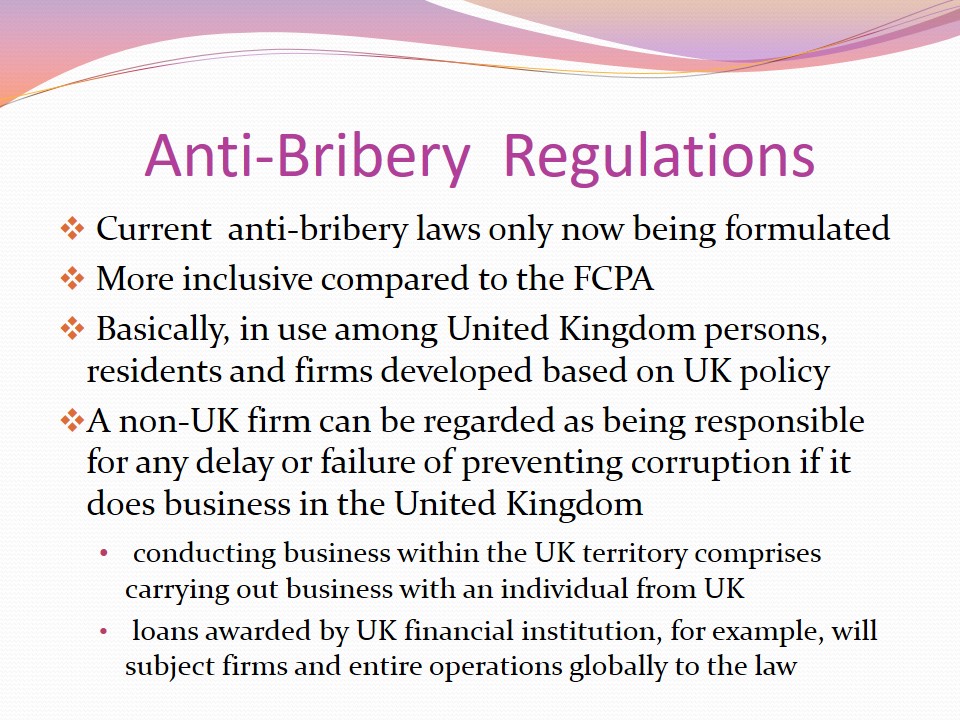
Possibility
The following activities are unethical under the United Kingdom anti-corruption law:
- dynamic corruption: extending or giving money or anything of value;
- dormant corruption: accepting to get or agreeing money or anything of value;
- corruption of foreign public officers;
- The delay or unwillingness of firms in preventing corruption by a concerned party-commonly known as corporate offense.
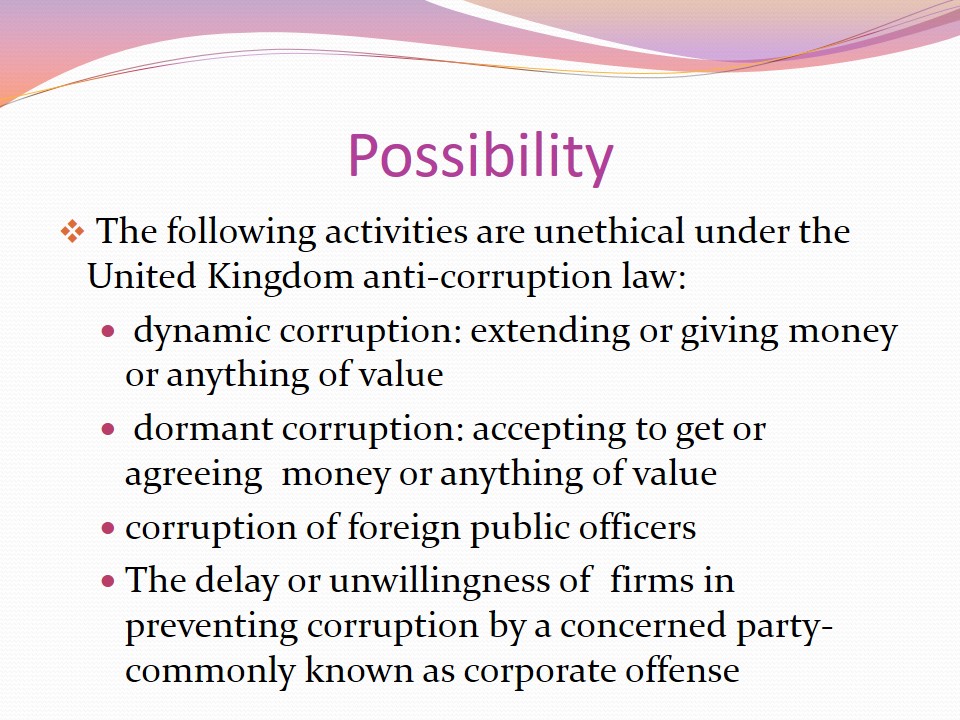
Associated fines
- Severe penalties against any firm and in certain instances the people in question.
- A jail term not exceeding 10 years for the workers involved in the bribery and in certain instances their seniors as well or any executive at the firm who was involved.
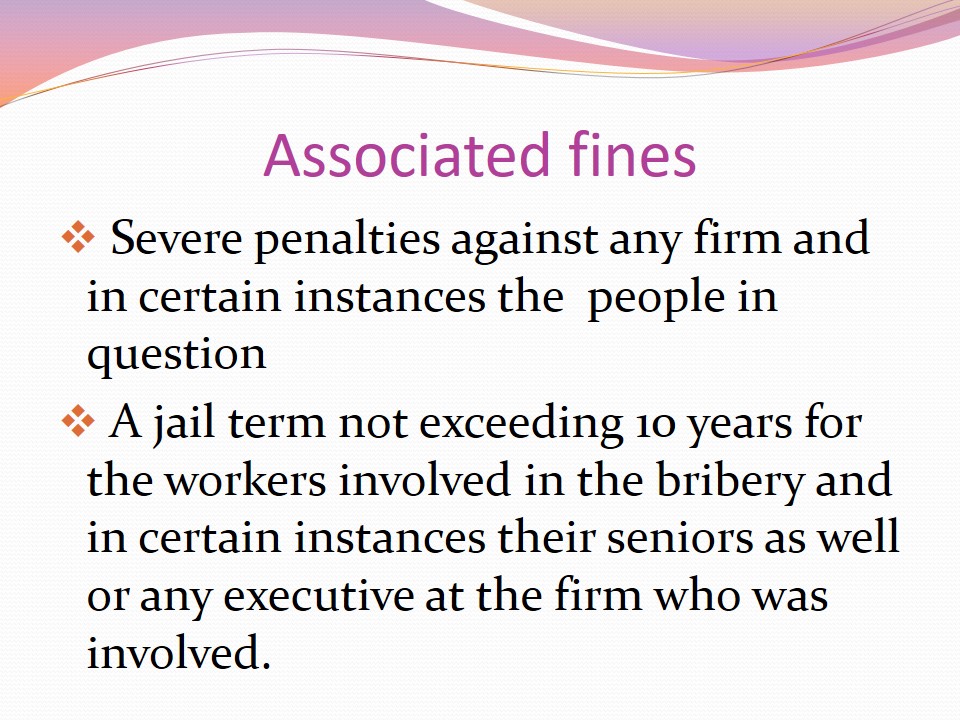
Additional regulations
- Domestic regulations may provide that some operations constitute an offense for which the persons in question can be fined.
- Different countries may have their own regulations and their own list of black listed individuals or organizations.
- European Union and United States individuals conducting business with some nations or accepting United States based products to be offered to people in such nations.
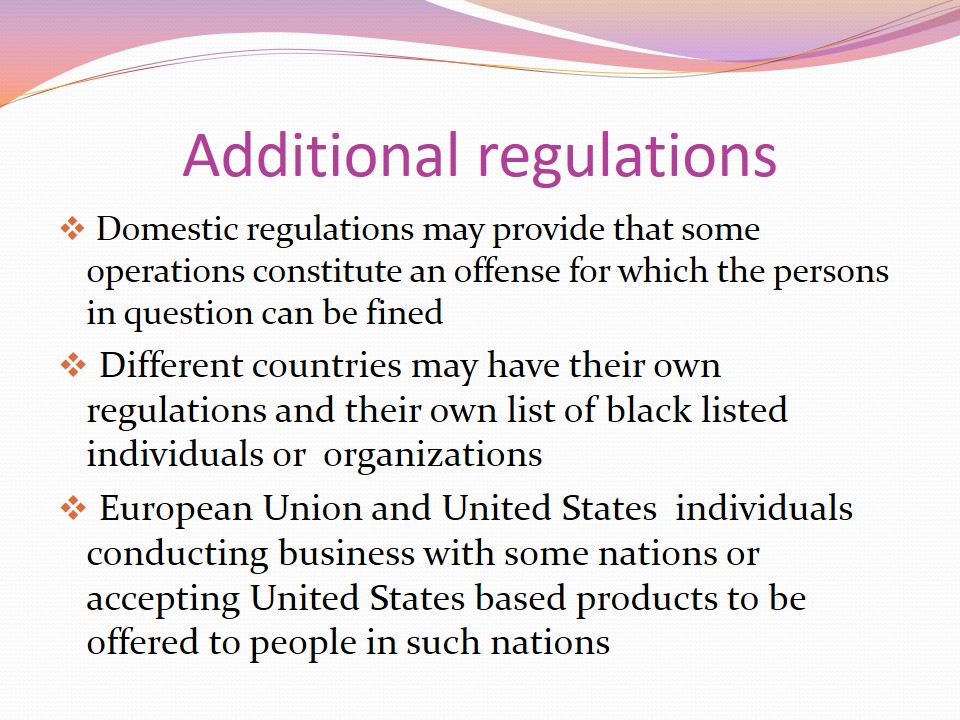
Support Organizations
- Professional bodies have their tailored ethical requirements as far their members are concerned, which are frequently slightly greater compared to applicable regulation.
- These professional organizations comprise Certified Public Accountants among others.
- Implication of violating such law could range from a simple warning or a penalty, or may lead to termination of membership.
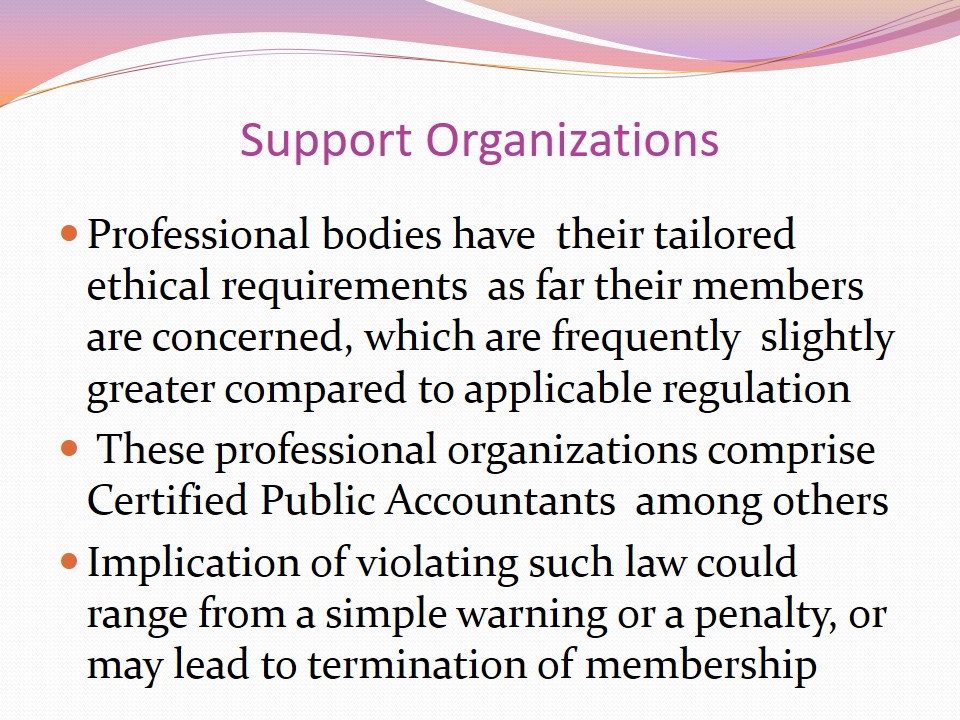
Organization Ethics
- Firms have to implement intrinsic business ethics.
- Basic ethical requirements comprise of many subjects. These includes:
- Utilization of organization assets;
- How to deal with shareholder concerns;
- Gift provision;
- Promotion.
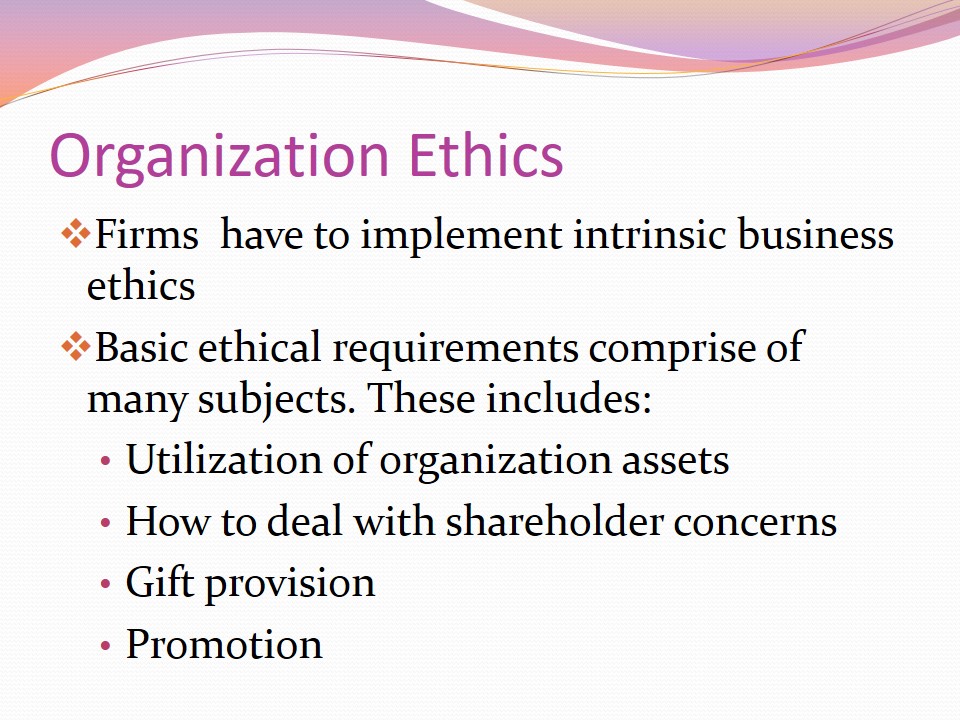
Individual Ethical Concerns
- Personal status, monetary condition, faith and tradition all influence people’s individual ethical reputation when doing business.
- Conflict arises when a person’s individual ethical status do not attain the standard needed by the regulation or an organization’s intrinsic practices and processes.
- Intrinsic audit procedures must be adopted and critically applied with a view of identifying risky individuals.
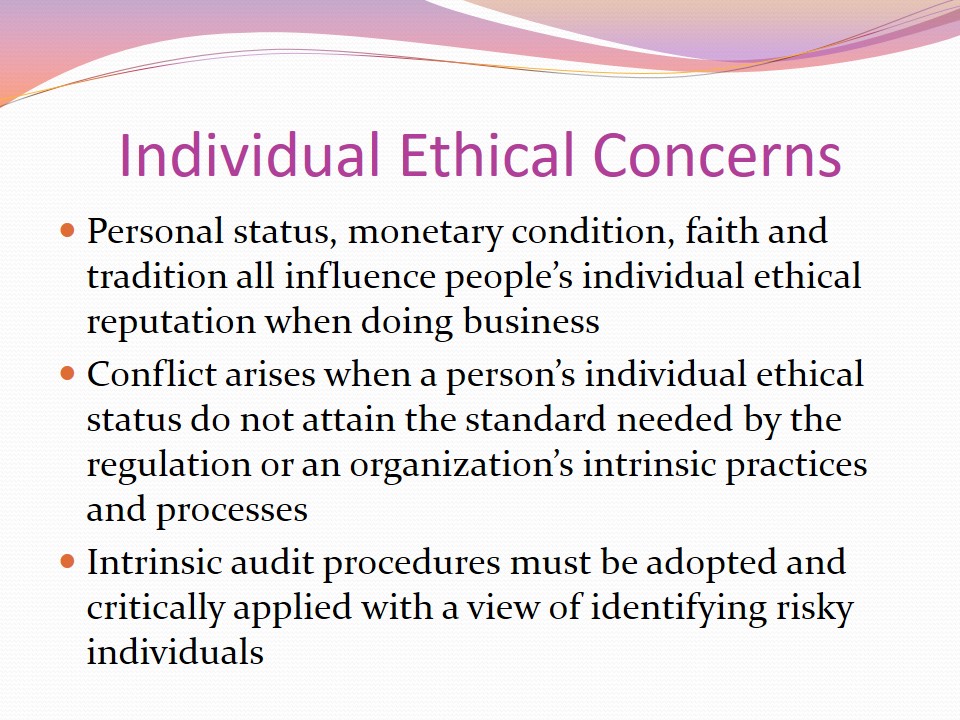
Conclusions
- According to regulations such as FCPA and the United Kingdom anti-corruption policy, as well as other laws, firms will remain accountable for the actions of their workers.
- Best practice is the key to proper regulations and processes, promote practices of ethical conducts, check worker and organization operations and deal exhaustively with any suspicious act.
- Concerns regarding individual uncertainties, affect the reputation of any organization and possible criminal fines could be applied.
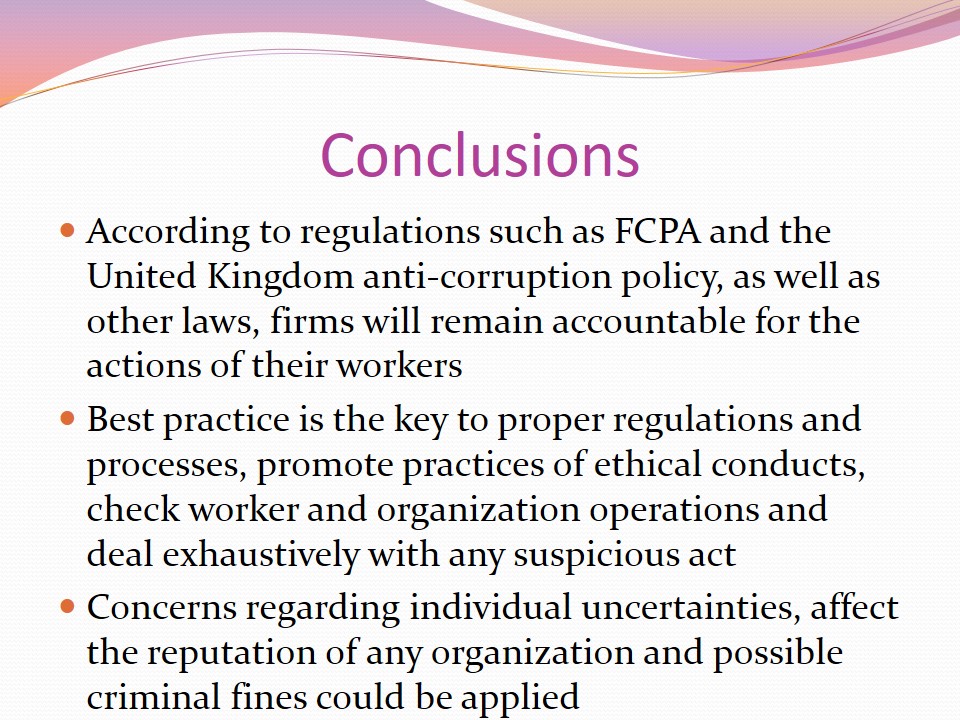
References
William A., Klein, J., Coffee, J & Partnoy, J. Business Organization and Finance, Legal and Economic Principles. London: UP; 2007.
Watts G., & Khodeir M. The International Comparative Legal Guide to: Corporate Governance. London: GBL; 2009.